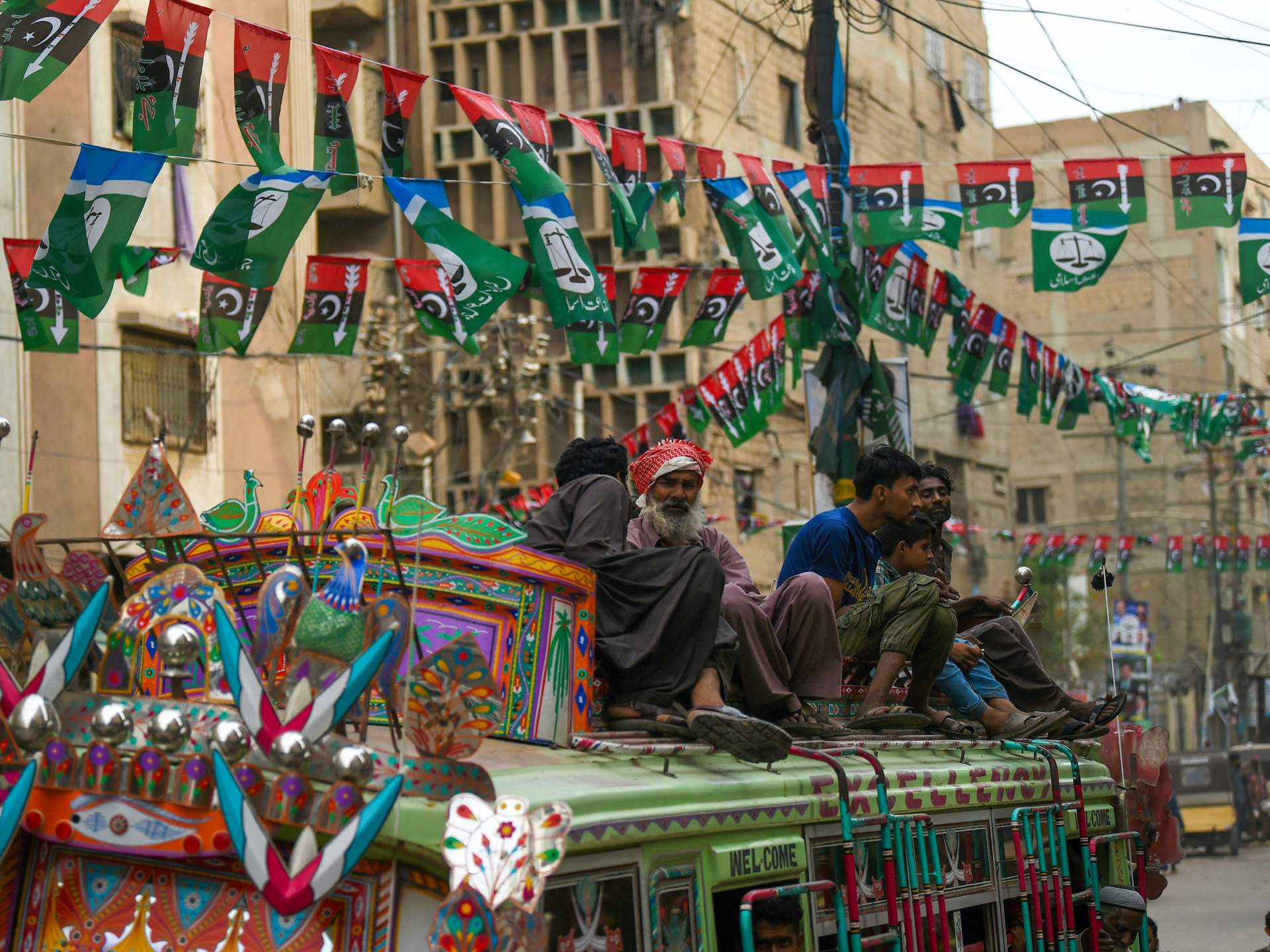An aspect of the election campaigns in Karachi, Pakistan (French)
In Pakistan, where large segments of society suffer from illiteracy, political parties resort to symbols to identify their candidates in campaigns and on ballot papers, even if these symbols are strange, such as an eggplant, a bottle, and a bed.
With pride, Amer Maghal - the candidate for the elections scheduled to be held next Thursday - holds up an eggplant, trying to take advantage of this strange symbol given to him, to rally the ranks of voters.
Sarcastically, the candidate for prosecution in the capital, Islamabad, who supports former Prime Minister Imran Khan, who is in prison, says, “Eggplant has now become a famous symbol throughout all of Pakistan.”
As the army intensifies its campaign against the opposition, some candidates accuse the authorities of undermining their campaigns by giving them strange or sometimes even insulting symbols.
Khan's party, the Pakistan Tehreek-e-Insaf (PTI), has been banned from using the cricket bat it has long adopted as its symbol.
Requests to nominate dozens of party officials were rejected, while others were forced to run as independent candidates.
Many of them have been harassed or forced to go into hiding, while some have been given eye-catching symbols that make it difficult for them to advance their campaigns.
A spokesman for the Electoral Commission explained that the symbols are chosen from a list designated for independent candidates, “which is exclusively the prerogative of the directors of the polling process.”
Amer Mughal, for his part, confirms, “The Electoral Commission gave us this symbol out of disdain for us.”
A neighborhood in Peshawar, Pakistan (Reuters)
Great reputation
However, the 46-year-old candidate accepted his share, as he is accompanied on all his movements by an aide carrying a bag full of eggplants, which he uses as an amulet in his campaign.
He holds the eggplant shells in his hand while giving his speeches, which has contributed to increasing his popularity and the price of eggplants increasing four times, he says.
“This symbol brought me a wonderful reputation,” the candidate confirms.
It is strange that Ijaz Ghadan, who has always considered his constituency in the Punjab province as the “final resting place” of his ancestors, received a bed as a symbol in his election campaign.
“They mean to insult us with these symbols,” says the 50-year-old man, who is a candidate in Bahawalpur constituency. “Some candidates are embarrassed to reveal the symbols they have received.”
Ghadan adds, "This is not an election. This is an atrocity."
Its symbol is a symbol of a traditional bed made of wood and braided canes, commonly used among poor families. “It is a very useful piece of furniture that gives us comfort in our lives and transports us to our final resting place in death.”
Negative stereotypes
Ghadan continues optimistically, "Ramzi is present in every home. I do not need to present him to the voters."
As for the party of former Prime Minister Nawaz Sharif, the Pakistan Muslim League, which enjoys the support of the army, it is raising Assad as its symbol in this election campaign.
However, this does not affect Ghadan, who says, “The lion is a bloodthirsty animal. There is no place in our society for a monster like this.”
In northeastern Pakistan, Shehryar Afridi was angry when he learned that the bottle had been chosen as a symbol of his election campaign.
In the Pashto language, calling someone a bottle means that he is mentally ill and is presumed to be a drinker.
“The majority of PTI candidates, myself included, were given symbols associated with negative stereotypes,” says Afridi, 45 years old. He asserts, "They intentionally gave us these symbols with the aim of mocking us."
He filed his case before the local judiciary and was unsuccessful in his endeavor. However, he did not hesitate to turn the situation to his advantage, as the bottle - as he says - does not only represent alcohol, but “it also represents medicine.”
He continued by saying, "This is why we turned our electoral symbol into a medicine bottle, so that we can cure society's ills."
Source: French

